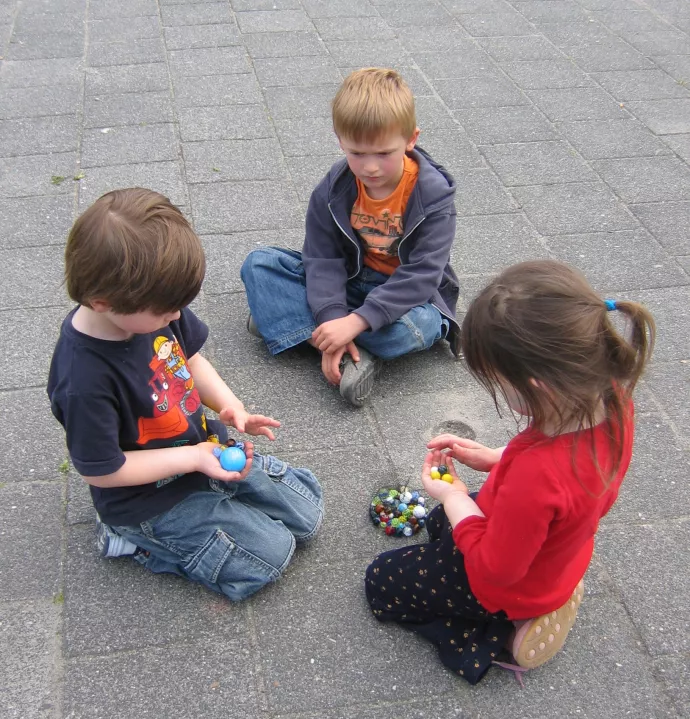
Guilty! UTM prof says guilt is a healthy part of child development
Nobody likes to feel guilty about anything, but U of T Mississauga psychology professor Tina Malti says that developing a sense of guilt in childhood is an important and healthy part of personal growth.
“Like empathy, moral guilt is a healthy emotion,” says Malti, who studies childhood emotional and social development at UTM’s Laboratory for Social-Emotional Development. “Children learn the emotion of guilt in situations where they transgress important rules or societal obligations, such as not stealing or helping others. Feeling guilt helps the child refrain from aggression and other antisocial behavior. We believe it’s an important emotion to have because it also creates a motive to engage in reparative behaviour.”
In a study published in the journal Child Development, Malti reports on the findings of a six-year longitudinal study that investigated how sympathy, guilt and moral reasoning help children to learn concepts of cooperation and other pro-social behaviours. Malti and her team collected data from 175 children and their families and teachers, and found that guilt plays an important role in helping children to develop pro-social behaviours.
According to Malti, the three- to seven-year window is an important time when a child’s cognitive development allows them to understand that another person might be unhappy because of their own behaviour. Before this period, they are unable to fully comprehend the feelings of others.
“During this time, children increasingly develop the capacity to control their own impulses and emotions, which helps them to reflect and change how they feel,” Malti says. At the same time, they become better at coordinating their emotions with their thoughts. ““This creates lots of learning opportunities, which are essential to promote other-oriented skills like empathy and kindness. You need to understand how others feel as a consequence of your own behaviour.”
“Children learn that it’s wrong to harm others or take away a toy,” she says. “Increasing cognitive development allows them to understand that someone is unhappy because of their behaviour, they understand they should show remorse and undertake reparative behaviours like returning a toy or bring a treat to apologize.”
Parents and caregivers can help instill guilt in a healthy way by helping the child to understand the link between their action and the emotional consequences. “For instance, if a child steals a treat from another child, the parent could point out that the victim was looking forward to eating it, but feels sad now because the child took it away,” she says. “Making that connection between an action and a friend’s sadness helps the child to reflect upon their own behaviour.” However, there must be a clear link between action and consequence, she says. “Instilling guilt for something a child has no control over [such as their parents' divorce] isn’t healthy.”
“These are rules of conduct that are helpful in everyday life and very beneficial to help learn to live together in peaceful manner. But if you have too little or too much, it can be harmful to ourselves and to others.”
